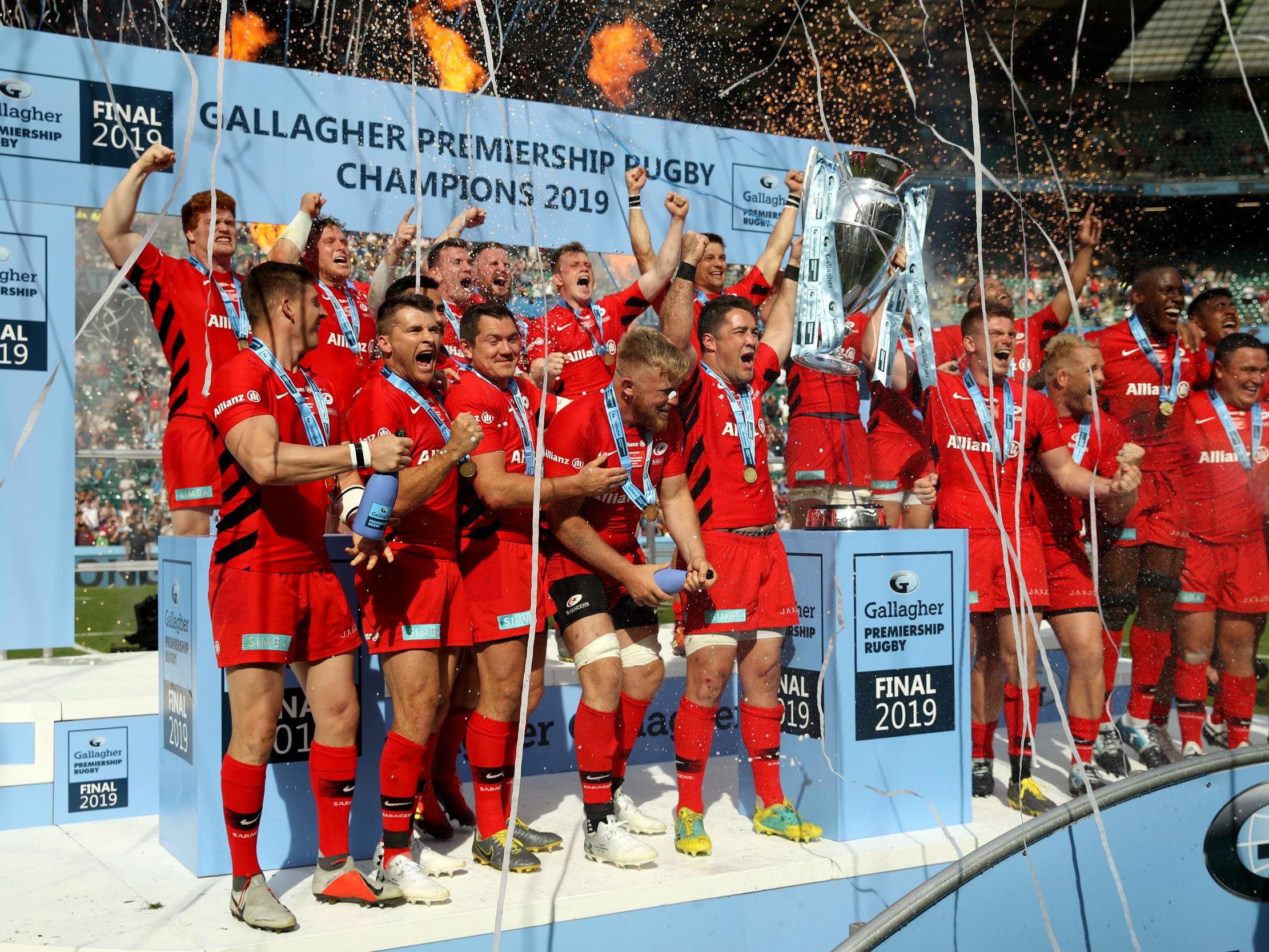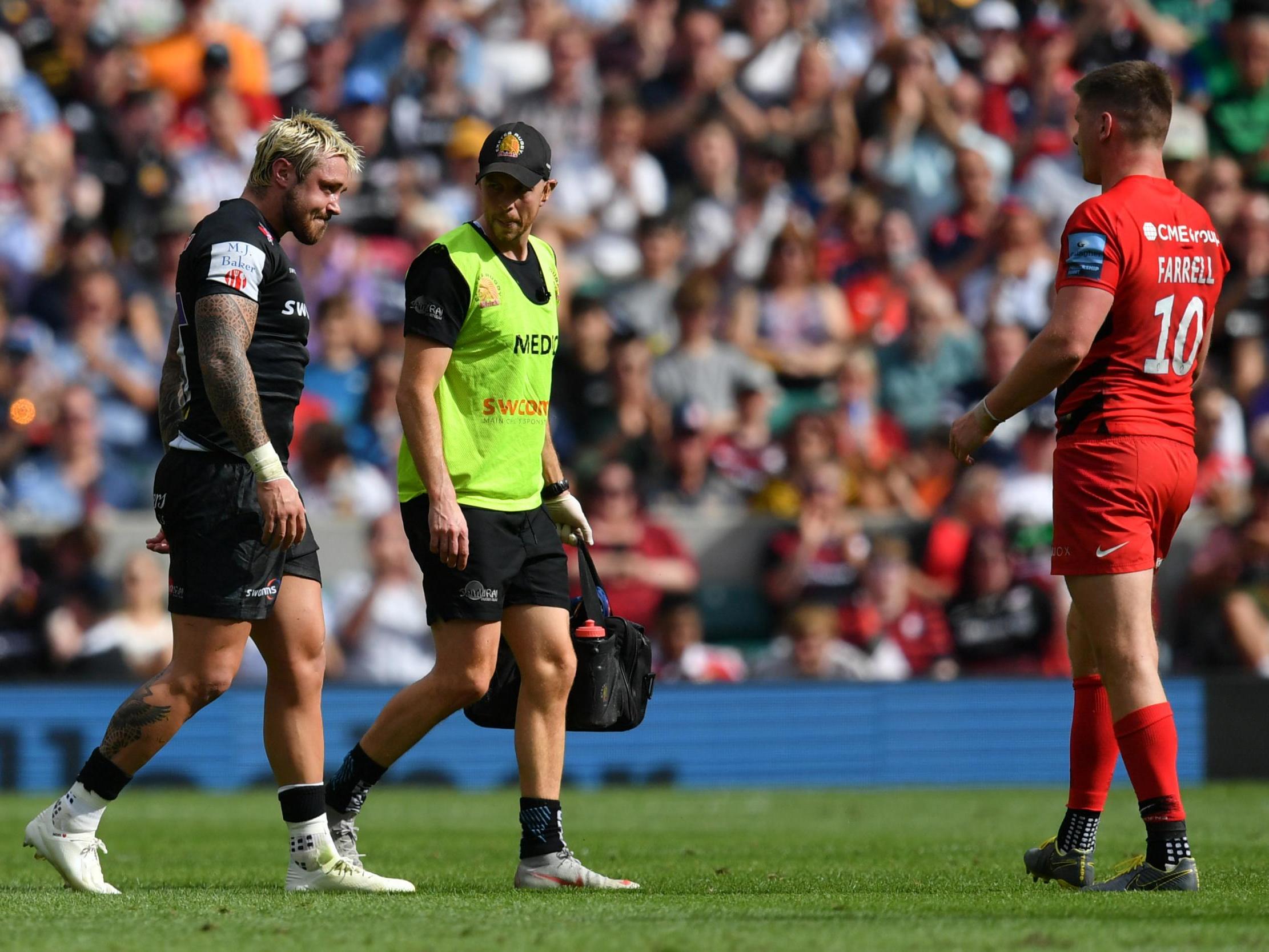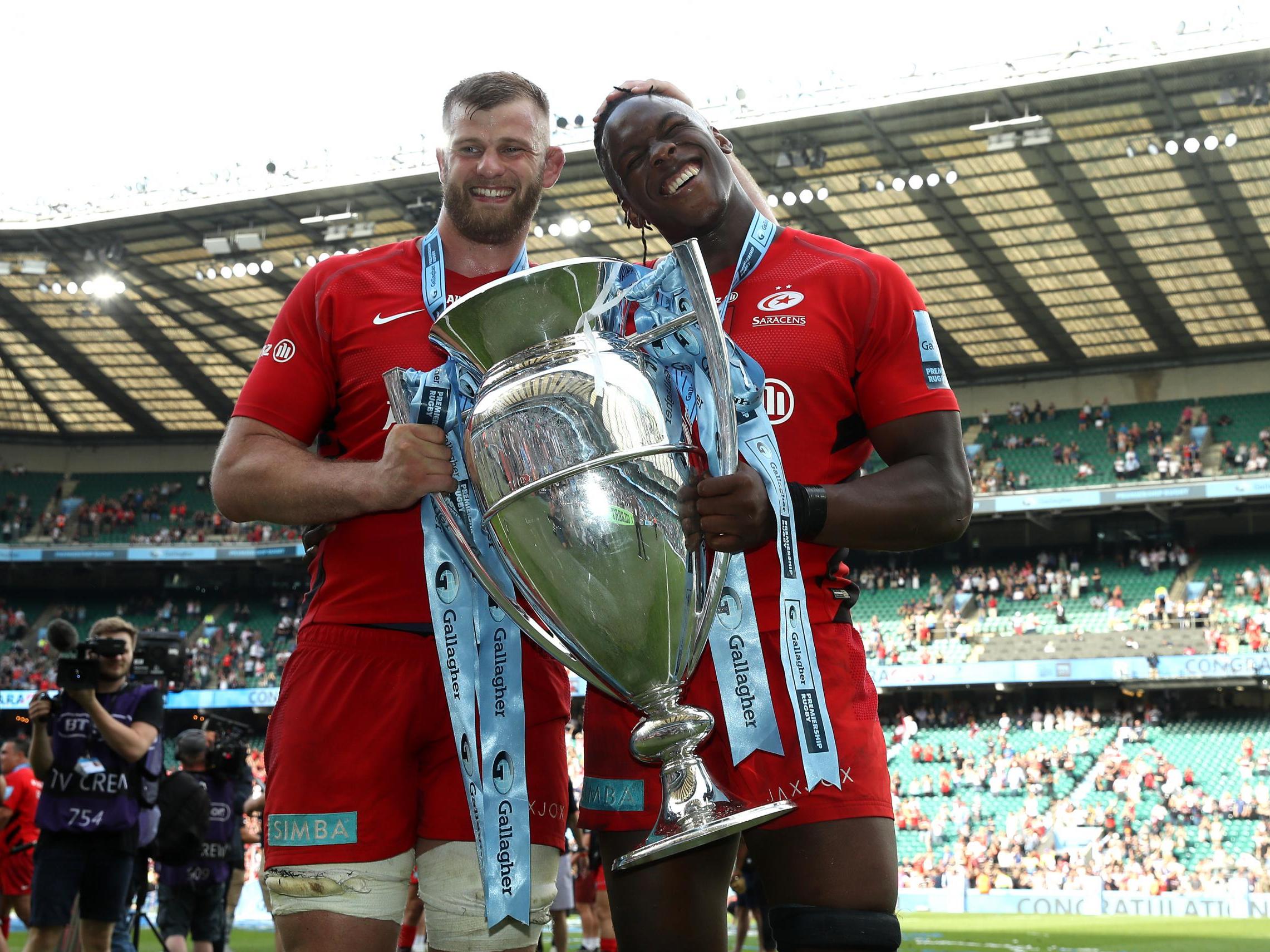Unshakeable and unparalleled, Saracens have etched their names into the sporting history books
Saracens are set up to dominate the English rugby landscape for many more seasons to come

Your support helps us to tell the story
From reproductive rights to climate change to Big Tech, The Independent is on the ground when the story is developing. Whether it's investigating the financials of Elon Musk's pro-Trump PAC or producing our latest documentary, 'The A Word', which shines a light on the American women fighting for reproductive rights, we know how important it is to parse out the facts from the messaging.
At such a critical moment in US history, we need reporters on the ground. Your donation allows us to keep sending journalists to speak to both sides of the story.
The Independent is trusted by Americans across the entire political spectrum. And unlike many other quality news outlets, we choose not to lock Americans out of our reporting and analysis with paywalls. We believe quality journalism should be available to everyone, paid for by those who can afford it.
Your support makes all the difference.Five Premiership titles in nine years, four of them in the past five seasons. Two European Cup and domestic league doubles in four years, and a team that simply does not know how to lose the very biggest games.
Mark McCall’s Saracens etched their names into the English sporting history books on Saturday with a performance of such breath-taking determination, self-belief and inner steel it almost defied belief.
Saracens, undeniably, can now lay claim to being English club rugby’s all-time greatest team after they overhauled an 11-point second-half deficit to win a truly epic Premiership final at a pulsating Twickenham Stadium.
Exeter, to their credit, were magnificent. Making a nonsense of pre-match talk labelling their playing style one-dimensional and boring, Chiefs full back Jack Nowell led a full-frontal attack on McCall’s team which looked to have been sunk when Henry Slade latched on to Sam Skinnner’s powerful surge down the right to crash over in the corner.
Chiefs captain Jack Yeandle admitted afterwards his players believed the game was won as they took a 27-16 lead with less than a quarter to play. As so many others have found to their detriment, it was a fatal error. Chiefs’ celebrations were premature.
With their season on the line, Saracens showed precisely why they have become peerless in European club rugby by scoring 21 unanswered points in an electrifying 17-minute surge which saw Exeter suffer the same fate which has befallen so many others before them.
When it mattered, Saracens’ heavy artillery stepped up and pounded Chiefs into submission with Owen Farrell, Jamie George, George Kruis and Liam Williams all featuring heavily in the critical closing stages.
Exeter may have finished the regular domestic season on top of the table, but with Saracens also concurrently managing a triumphant European Champions Cup campaign, there was always a suspicion the north Londoners would hold the whip hand when it came to the grand final.
So it proved. Just.
After the torment of defeat in last year’s final, when Exeter’s players collectively failed to show up, this defeat was perhaps even more painful as Rob Baxter’s men saved their best for last but still came up short.
Chiefs could hardly be faulted for the way they tore into the defending champions, playing with purpose, power, width and precision for large swathes of the game.
Saracens’ Maro Itoje won the official man-of-the-match award but Nowell was by a distance the outstanding player on the field before his ankle buckled horribly when it became trapped in a melee of bodies at a breakdown with 10 minutes left.
His departure left a massive void at the back for Chiefs and it was impossible to see them stemming the rising Saracens tide in his absence.
We will learn more about the extent of his injury in the coming days but the early signs did not look good and England fans will be holding their breath his World Cup participation has not been placed in serious jeopardy.
The pats on the back he received from Saracens players as he hobbled from the field to a standing ovation was indicative of the potential seriousness of the injury and the high esteem this young English warrior is held in by opponents.

Indeed, the whole game was played in a spirit which did credit to the sport and both sets of players. The two best teams in the country by a significant distance played each other to a standstill.
Chiefs’ time will come again. Baxter has forged a wonderful culture at Sandy Park and in most other eras it would be the west-countrymen who would be the dominant force in the English club game.
But this is not any other era. This is firmly Saracens’ era, and it is worth all rugby fans stepping back and applauding a team possessing such iron-will and collective quality it places them above any other English club team in history.
Farrell is their talisman but there are leaders throughout the squad and in Williams, whose ninth try of the season proved the catalyst for his team’s inspired revival when he claimed Farrell’s inch-perfect cross kick to dot down in the right corner, they have the outstanding three quarter in the northern hemisphere.

Even when playing below their best, Saracens were still able to haul themselves off the floor and deliver the knock-out blow. It is the hallmark of all great sporting sides.
Their dominance is undeniable. Their pedigree unsurpassed. And for those of us who have witnessed their young academy stars shine at every opportunity afforded them this season, their legacy is set to live on for a long time to come.
Saracens are set up to dominate the English rugby landscape for many more seasons to come.
Join our commenting forum
Join thought-provoking conversations, follow other Independent readers and see their replies
Comments